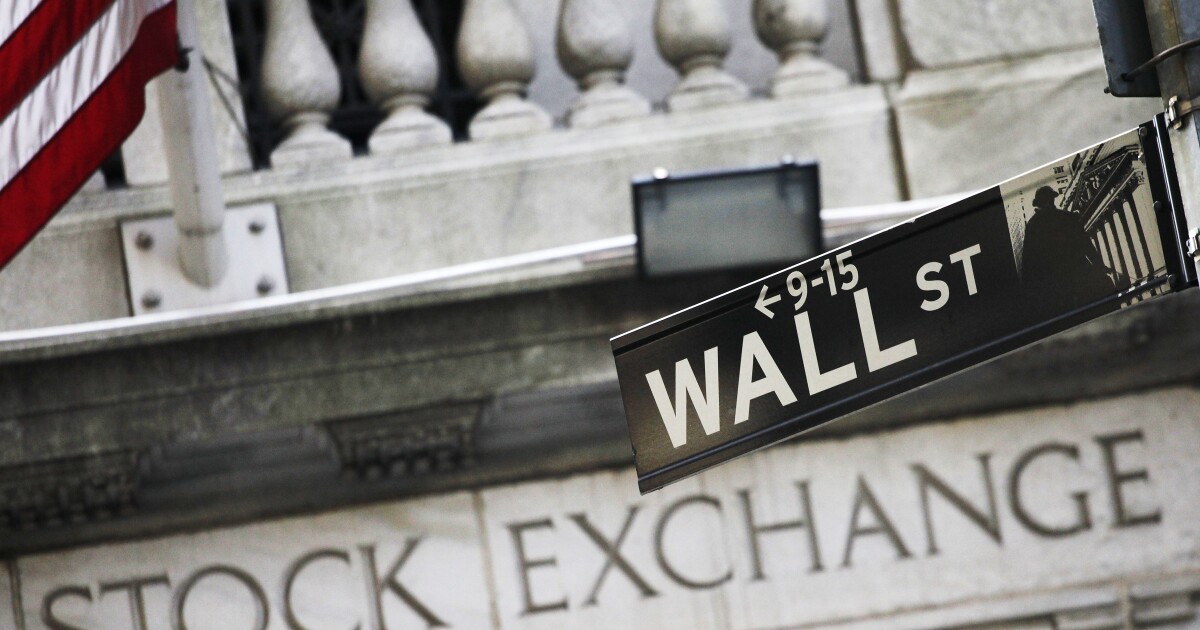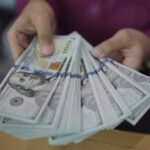

Business conditions in the United States are beginning to weaken, according to a new survey of more than four dozen of the country’s leading business economists.
The October survey, which was conducted by the National Association for Business Economics this month and released Monday, found that 55% of participants say that higher interest rates are one of the two biggest downside risks to their company’s outlook, while 51% cite problems with inflation.
INFLATION HOLDS STEADY AT 3.4% IN SEPTEMBER IN FED’S PREFERRED GAUGE
Interest rates have been rising since the Federal Reserve began tightening its monetary policy in March of last year. The higher rates are designed to cool the economy, and thus inflation, although they make life more difficult for business and could end up causing layoffs and cutbacks for companies.
“The October 2023 Business Conditions Survey results suggest a more challenging business environment as the economy slows,” said NABE President Ellen Zentner, chief U.S. economist at Morgan Stanley. “Sales are seen as growing, but at a slower pace, and profit margins are reported to be declining.”
Additionally, just 31% of the respondents reported that their companies’ product or service sales have been rising over the past three months. That is the lowest percentage in at least the last two years. And a quarter of respondents reported falling sales — the highest number since January.
In terms of profit margins, over the past three months, 34% of respondents said their companies’ profit margins have been falling — that is up from 26% in July. Just 14% reported rising profit margins in August, September, and October.
Still, despite the darkening clouds for the business world, those surveyed are feeling increasingly confident that the U.S. will be able to avoid falling into a recession — a possibility that seemed a near certainty to some just a year ago.
Nearly 8 in 10 of the respondents said that there is a less than 50% chance that the economy will enter a recession over the next year. That is a major departure from a few months ago when 58% of participants in the same survey predicted that a recession would hit in the next 12 months.
The optimism about avoiding a recession is echoed by Treasury Secretary Janet Yellen, who said this week that it appears the economy will avoid a recession as the Fed works to tamp down too-high inflation.
After a hot report on gross domestic product growth, Yellen said after the report that the 4.9% expansion in the third quarter could be a sign that the Fed has pulled off a “soft landing,” a scenario in which the central bank is able to drive inflation down to its 2% target without causing a recession.
“You know, what we have looks like a soft landing with very good outcomes for the U.S. economy,” Yellen told Bloomberg.
“Frankly, it’s only, it’s about a year ago, since I believe a Bloomberg model predicted that by October of 2023, now, namely, that you saw the odds of recession at 100%. I don’t think we have that,” she also told the outlet, taking a jab at how many economists expected that the economy would be underwater by now.
Greg McBride, chief financial analyst at Bankrate, said that while a recession is certainly still possible, the odds of one have been falling over the past several months.
“Down meaningfully, but still more or less a fifty-fifty shot as to whether or not a recession does eventually come,” McBride told the Washington Examiner on Friday.
In some other positive news, the survey of NABE members found that price pressures are starting to abate some for the business world as the Fed works to tame inflation.
CLICK HERE TO READ MORE FROM THE WASHINGTON EXAMINER
Only about a third of respondents reported that prices charged by their firms rose in the third quarter of this year. That is a notable decrease from nearly half who said the same in the July survey.
“The panel suggests that inflation is continuing to ease, which is good news for consumers,” added NABE Business Conditions Survey chairman Carlos Herrara, chief economist for Coca-Cola North America.






